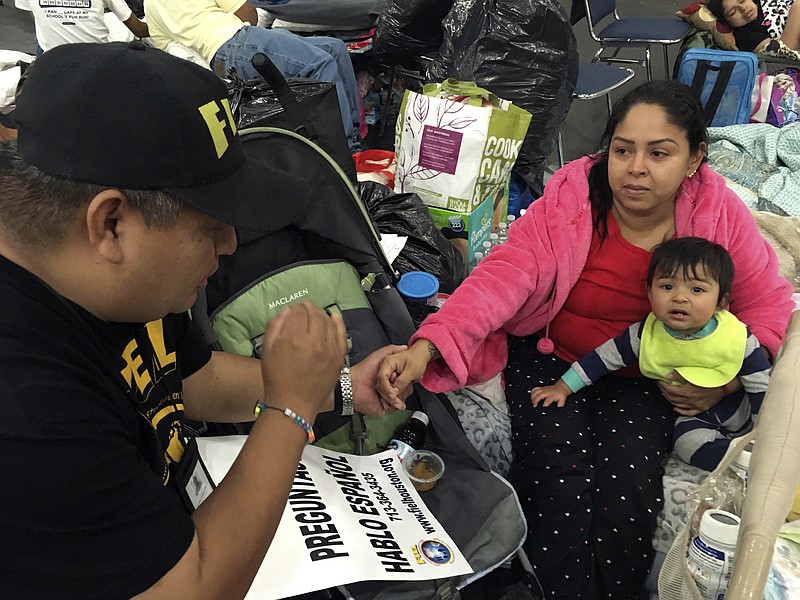HOUSTON (AP) - As a parade of motorists rolled down their windows on the edges of a Houston Home Depot parking lot offering cash, the crowd of day laborers had slowly thinned to about a dozen by mid-morning.
The workers who were already gone were off to tear out soggy carpeting, carry ruined sofas to the curb and saw apart mold-infested drywall. Those who still remained knew they were hot commodities and weren't going to settle for low offers.
The owner of a car dealership shook his head and drove off after his $10-an-hour proposal to clean flooded vehicles drew no takers. A pickup driver who promised $50 for two hours to rip out wet carpeting and move furniture was told the job was too short to be worthwhile.
Day laborers - many of them immigrants and many of them in the country illegally - will continue to be in high demand as workers who clear debris make way for plumbers, electricians, drywall installers and carpenters. Employers are generally small, unregulated contractors or individual homeowners, resulting in a lack of oversight that creates potential for workers to be unpaid or work in dangerous conditions.
Houston's day laborers are generally settling for $120-$150 to clear homes of Harvey's debris for eight hours. As noon struck Friday, three workers took a job for $100 for up to five hours rather than let the whole day slip. It didn't hurt that the contractor provided tools, distributed bottles of cold water and dangled the prospect of more steady work clearing other houses.
"Now we'll be busy for the rest of the year," said the contractor, Nicolas Garcia, a naturalized U.S. citizen from Mexico who has had his own business for 15 years. "Now that this disaster happened, we have to step it up."
Garcia, 55, is working about 20 miles southeast of downtown Houston in the Southbelt/Ellington area, a middle-class residential neighborhood whose main streets are lined with fast-food restaurants, strip malls and churches.
The contractor led a caravan of workers to a four-bedroom house that was in better shape than others. Sharon Eldridge, a 63-year-old renter who lives alone, landed in about a foot of water when she stepped out of bed Sunday. Her furniture and clothes were ruined, but she didn't have to evacuate.
Armando Rivera, a 36-year-old Honduran who is living in the country illegally and raising four children with his wife, said it was painful to see so many people die and lose their home, but the storm would jolt the local construction economy.

